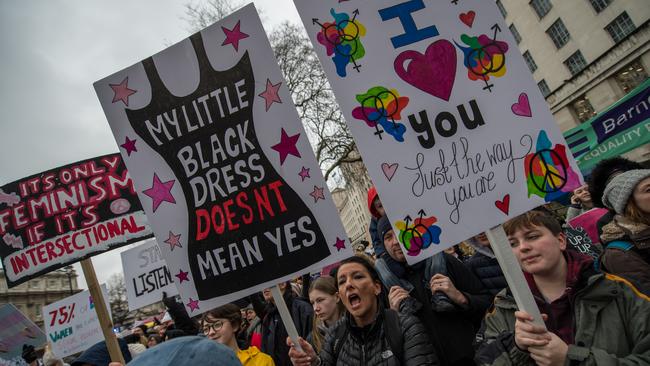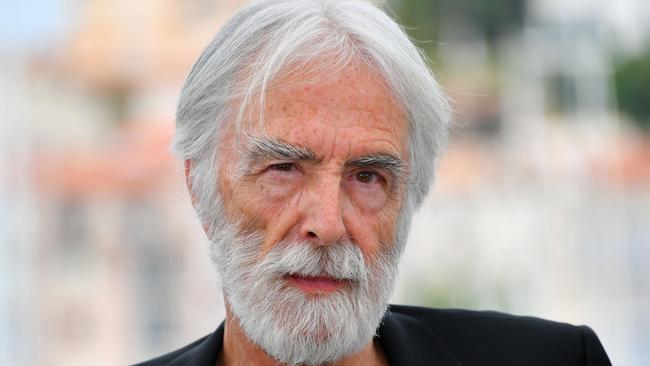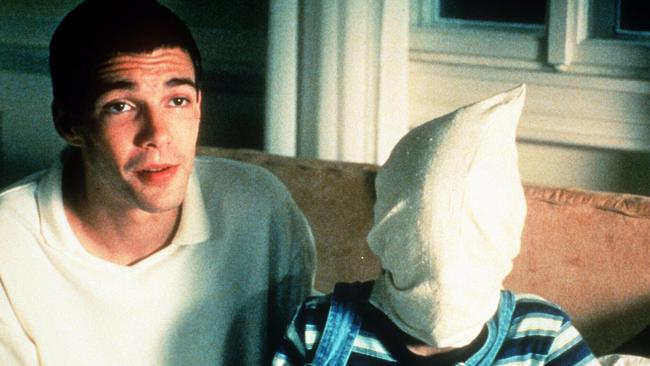MeToo is censoring sex, says director Michael Haneke
One of the world’s leading film directors says the #MeToo movement is a “crusade against eroticism”.

The #MeToo movement has morphed into a “crusade against eroticism” that is restricting artistic freedom, according to one of the world’s leading directors.
Michael Haneke said that classic art house films exploring human sexuality would not get made today because studios and investors feared a backlash.
The Austrian director of Amour, The White Ribbon and Funny Games also claimed the flood of sexual harassment allegations against prominent men since the Harvey Weinstein scandal was a “witch-hunt” that had “murdered lives and careers”.
“This new puritanism coloured by a hatred of men, arriving on the heels of the #MeToo movement, worries me,” Haneke, 75, told Austrian newspaper Kurier. Women across the world have used the hashtag to share their own experiences of harassment.
The Oscar winner’s comments are likely to prove controversial.

Last month French actress Catherine Deneuve apologised to sexual assault victims after co-signing an open letter claiming the campaign against harassment had gone too far. The letter, signed by 100 French women writers, performers and academics denounced the #Metoo movement as a puritan backlash that treated women as children and denied their sexual freedom.
Haneke, echoed those sentiments and described the wave of abuse of allegations against powerful men in the entertainment industry as a “shitstorm” that had “poisoned the social climate”.
“Of course I think any kind of rape or sexual coercion should be punished,” he said. “But the hysteria we’re seeing now, pre-empting any proper judgment, I find that disgusting.”
Haneke did not say which, if any, accusations against prominent men he believed to be unfounded.
Dozens of actors, executives and politicians have faced allegations of sexual harassment in the four months since the Hollywood mogul was publicly accused of rape and sexual assault by multiple women.

He was sacked by The Weinstein Company and is under police investigation in Britain and the US.
Haneke is known for tackling dark and disturbing subjects. In Funny Games (1997) a family is taken hostage and tortured by sadistic teenagers. Amour (2012), for which he won a Cannes Palme d’Or and best foreign language film Oscar, faced accusations of promoting euthanasia.
The director, who is not accused of any misconduct, warned that new sensitivities around sex had already limited filmmakers’ freedom.
“In The Realm of the Senses by (Nagisha) Oshima, one of the most profound films ever made on sexuality, wouldn’t get made today because funding institutions wouldn’t allow it; they would be in thrall to this terror,” he said.
The 1976 Japanese art film trod a line between pornography and art and was often censored.
There is some evidence that Hollywood is shying away from overtly sexual material since the Weinstein scandal broke. A planned biopic of the Playboy founder Hugh Hefner is “all but dead”, and a soon-to-be-released remake of A Star Is Born has been made less “steamy”, according to T he Hollywood Reporter.
Haneke has made 12 feature films and announced last month that he would be making his first television series, entitled Kelvin’s Book, an English-language dystopian drama.
The Times



